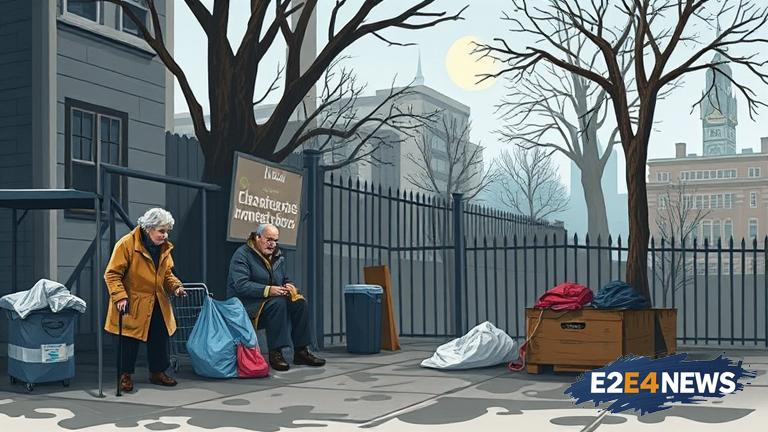The United States is facing a growing national scandal of elder homelessness, with thousands of seniors struggling to find stable and secure housing. Healthcare groups have come together to counter this crisis, recognizing the devastating impact it has on the physical and mental health of older adults. Elder homelessness is a complex issue, often resulting from a combination of factors such as poverty, lack of affordable housing, and social isolation. Many seniors are forced to live on the streets, in shelters, or in temporary housing, which can exacerbate existing health conditions and lead to new ones. The healthcare community is sounding the alarm, highlighting the need for urgent action to address this crisis. Organizations are working together to provide support services, including housing assistance, medical care, and social support. These efforts aim to help seniors access stable housing, improve their health outcomes, and enhance their overall quality of life. The issue of elder homelessness is not limited to any one region, with cities and towns across the country struggling to cope with the problem. Healthcare groups are calling for increased funding and resources to support their efforts, as well as policy changes to address the root causes of elder homelessness. The crisis is particularly concerning, given the growing aging population in the US, with the number of Americans aged 65 and older projected to increase significantly in the coming years. As the population ages, the demand for affordable housing and support services will only continue to grow. Healthcare organizations are working to raise awareness about the issue, highlighting the human impact of elder homelessness and the need for compassionate and comprehensive solutions. They are also advocating for policy changes, such as increased funding for affordable housing programs and expanded access to healthcare services. Furthermore, healthcare groups are collaborating with community organizations, government agencies, and other stakeholders to develop and implement effective strategies to address elder homelessness. These efforts include providing emergency shelter, permanent supportive housing, and transitional housing, as well as offering supportive services such as case management, counseling, and medical care. Additionally, healthcare organizations are working to address the social determinants of health, recognizing that housing stability is a critical factor in overall health and wellbeing. By providing stable housing and support services, healthcare groups aim to improve health outcomes, reduce healthcare costs, and enhance the quality of life for vulnerable seniors. The issue of elder homelessness is a national scandal that requires immediate attention and action. Healthcare organizations are leading the charge, but it will require a collective effort from government, community organizations, and individuals to address this crisis and ensure that all seniors have access to safe, stable, and secure housing. The consequences of inaction will be severe, with thousands of seniors continuing to suffer on the streets, in shelters, or in temporary housing. It is imperative that we take action now to address this crisis, providing the support and resources necessary to ensure that all seniors can live with dignity and respect. The healthcare community is committed to this effort, and it is essential that we work together to make a meaningful difference in the lives of vulnerable seniors. By doing so, we can help to prevent the devastating consequences of elder homelessness and ensure that all seniors have access to the care and support they need to thrive.
